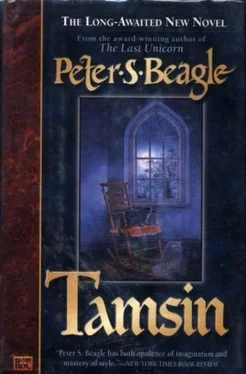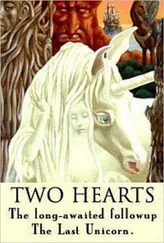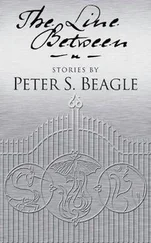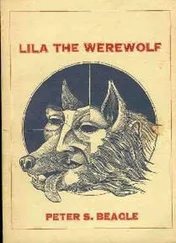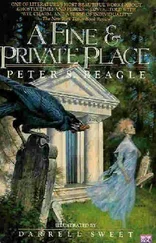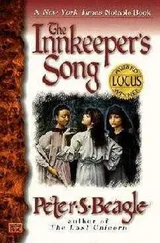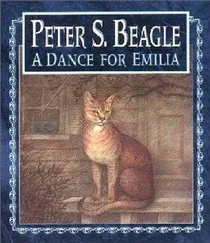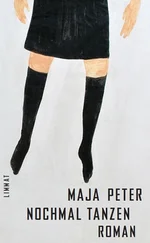Peter Beagle - Tamsin
Здесь есть возможность читать онлайн «Peter Beagle - Tamsin» весь текст электронной книги совершенно бесплатно (целиком полную версию без сокращений). В некоторых случаях можно слушать аудио, скачать через торрент в формате fb2 и присутствует краткое содержание. Год выпуска: 1999, Издательство: ROC, Жанр: Фэнтези, на английском языке. Описание произведения, (предисловие) а так же отзывы посетителей доступны на портале библиотеки ЛибКат.
- Название:Tamsin
- Автор:
- Издательство:ROC
- Жанр:
- Год:1999
- ISBN:нет данных
- Рейтинг книги:3 / 5. Голосов: 1
-
Избранное:Добавить в избранное
- Отзывы:
-
Ваша оценка:
- 60
- 1
- 2
- 3
- 4
- 5
Tamsin: краткое содержание, описание и аннотация
Предлагаем к чтению аннотацию, описание, краткое содержание или предисловие (зависит от того, что написал сам автор книги «Tamsin»). Если вы не нашли необходимую информацию о книге — напишите в комментариях, мы постараемся отыскать её.
Tamsin — читать онлайн бесплатно полную книгу (весь текст) целиком
Ниже представлен текст книги, разбитый по страницам. Система сохранения места последней прочитанной страницы, позволяет с удобством читать онлайн бесплатно книгу «Tamsin», без необходимости каждый раз заново искать на чём Вы остановились. Поставьте закладку, и сможете в любой момент перейти на страницу, на которой закончили чтение.
Интервал:
Закладка:
“Right, I forgot, you’re an American—there has to be a happy ending around here somewhere. Well, in another three years, here came the old Glorious Revolution, and James II left town hastily, and went into business as a public nuisance, which was the family trade, you might say. Judge Jeffreys suffered agonies from kidney stones, and died in the Tower.”
“Good,” I said. “That’s a happy ending, anyway.”
Tony shrugged. “Didn’t stick any heads back on any necks.” He picked up a towel, mopped his face with it, and turned the light out. As we walked to the door, he said, “But I’d think it left a deal of angry ghosts around this part of Dorset. Noises would be the least of it.”
Locking the studio—he did that to keep Julian out, and me, too, probably—he said, “Thank you for working with me,” which was nice, as if we actually had been dancing together. I thought he might ask me again, but he never did.
Mister Cat didn’t bring his Persian lady around to my room again. We sort of didn’t talk to each other for a while—just came and went on our own business, me as much as him. We’ve had secrets together since I was little, but this wasn’t like that. It’s lonely when you know something nobody else knows, but it’s exciting, too. That’s the other side of the ground turning to water under you. Stourhead Farm felt like a completely new place, where every sound might mean something different than I’d thought—where suddenly every thing , not just cats or people, might be some kind of ghost from three hundred years ago. I really did want to tell people about it, and I really didn’t. If that makes any sense at all.
One thing was certain—whatever it was that was playing games with us, wasn’t likely to get bored any time soon. During the winter it had been an on-and-off kind of thing—stuff in the kitchen spilled and slopped or just vanished , a few mornings running, then nothing for a whole week or two. But come the warmer weather— about the time Mister Cat got sprung from quarantine—the boggart started expanding its horizons. Fuel lines breaking in the tractors and balers all the time, irrigation pipes coming apart, just where they were the hardest to get to, whole sections of Evan’s fences collapsing for no good reason, Sally having apples drop on her head when she wasn’t anywhere near the apple trees, something terrorizing Albert, the sheepdog, so on some days he wouldn’t come out of his kennel, let alone go back to the pasture. As for the marshy upper meadow that Evan kept trying to drain… well, never mind, you get the idea. Julian said to me once, “I’m glad we know it’s just a boggart. Otherwise I’d start worrying.”
What’s funny is that we really did know. Evan and Sally made a pass at sounding like rational, realistic parents, talking about coincidences and logical possibilities, but nobody paid any attention, including them. This wasn’t West Eighty-third Street, this was old, old Dorset, and what we had had to be a boggart; and the only chance you have with boggarts is catch them in the act. All the tales say they’re night creatures, so Sally set up a kitchen-watch rotation, making sure that she and Evan had the graveyard shift, and not even scheduling Julian at first. But he threw such a fit about being left out she finally penciled him in with me, from eight to eleven. I told him to bring his Snakes and Ladders game, because he’s such a bad loser and a worse winner that I figured we’d stay awake, one way and another.
The first nights, nothing, not on anybody’s watch. Evan said that figured. “He knows we’re on guard, so he’s going to sit tight for a while, considering. But he’ll make his move soon, because he has to. Boggarts can’t resist a challenge from humans, that’s how they are.”
I remember Sally asked, “What’s with this he all the time? What if it’s a lady boggart?” Evan said they were always male in the stories, and Meena—her parents let her sit up with Julian and me one night—said that in the little town where her father was born there was a lady boggart, or brownie, whatever, that swept out the temple at night. “Nobody ever saw her, but the priests would leave a bowl of milk out for her, and in the morning the milk would be gone and the temple would be clean. All the years my father lived there, every night, the same.”
Tony wanted to know how the priests could tell the Indian boggart was a female, if they never saw her, and Sally said because she cleaned up after herself, which you couldn’t get a man to do at gunpoint, never mind a male boggart. Evan said, “Right, then, we’ll just call him it , let it go at that.” Julian said he wanted to play Snakes and Ladders, so he and I and Meena played until Sally relieved us, and we didn’t see a thing. That whole first week, it must have been.
But maybe ten nights into the boggart patrol, the weather suddenly turned bad. We’d had a week or so of pure summer, which is about the way you get summer in England—a week at a time, scattered around through the other seasons. That night we got rain like horses galloping on the roof, and we got thunder that felt as though someone were pounding the Manor with a huge baseball bat. Evan and Sally were actually out in the storm, trying to protect the new sapling fruit trees, and Julian was scared for them, and I kept telling him they’d be okay, just play already—and in the middle of all that racket, we heard someone laughing. Not a nasty, tittering kind of laugh, like the ones I’d heard in my bathroom— this one was deep and loud enough that Julian and I both heard it through the thunder. We turned around so fast that we knocked over Julian’s Snakes and Ladders board, and we saw him.
It was a him , all right—I’d have known that much even if he hadn’t had a beard, just from the way he stood there with his thumbs in his belt and his head back, looking around our kitchen as though everything in it was his. I’ve seen three-year-old boys stand like that on playgrounds—you can’t miss it. He wasn’t any bigger than a three-year-old, either: He came about up to Julian’s chest, not counting his silly Seven Dwarfs hat with the green feather. He was dressed like a cross between the Seven Dwarfs and Robin Hood, in a kind of loose red smock, but with the belt, and brown leggings underneath, and heavy little boots, ankle-high— I’d have taken them for Doc Martens, except I don’t think they make them in boggart sizes. And there wasn’t a thing else in the world he could have been.
Julian had grabbed my hand, and I could feel him trembling right down my arm and into my stomach. He whispered, “Jenny, he came out from under the stove! How could he do that?”
I didn’t answer. I just held his hand with both of mine, trying to stop his shaking. Julian said, in this small, sad voice, “I don’t like this, Jenny.”
The boggart looked at us for the first time. You could tell he was really, really old, but I can’t say exactly how I knew, because he didn’t have any gray hair, and no wrinkles at all, just a few lines on his skin, which was red-brown, the same color as the new lettuce fields closest to the Manor. He had a face like a goat’s face—long and high-boned, with the little curly beard, and with big dark-red eyes, wicked eyes. I don’t mean evil , I mean wicked. I know the difference now.
“Dun’t ye goo a-ztaring,” he said. “There’s rude. Yer ma’d noo like it.”
That’s the way he sounded to me the first time I heard him speak. He had a deep voice for someone so small, but it didn’t seem out of place coming out of that face, that big chest like my father’s. He said again, “Dun’t goo a-ztaring at me. Else I’ll turn the pair of ye into crabapples and toss ye to the piggies. I will zo.”
Читать дальшеИнтервал:
Закладка:
Похожие книги на «Tamsin»
Представляем Вашему вниманию похожие книги на «Tamsin» списком для выбора. Мы отобрали схожую по названию и смыслу литературу в надежде предоставить читателям больше вариантов отыскать новые, интересные, ещё непрочитанные произведения.
Обсуждение, отзывы о книге «Tamsin» и просто собственные мнения читателей. Оставьте ваши комментарии, напишите, что Вы думаете о произведении, его смысле или главных героях. Укажите что конкретно понравилось, а что нет, и почему Вы так считаете.
